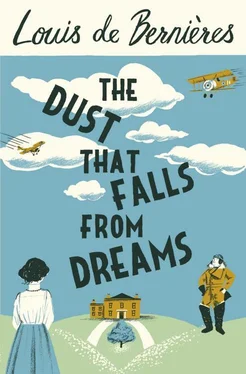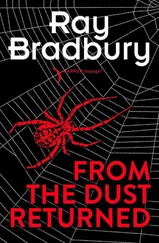Now must I put you from me year by year,
Now year by year the root of life be torn
Out of this womb to which you were so dear,
Now year by year the milky springs be dried
Within the sealed-up fountains of my breast,
Now year by year be to my arms denied
The burden they would break with and be blessed.
Sometimes I felt your lips and hands so close
I almost could have plucked you from the dark,
But now your very dream more distant grows
As my still aching body grows more stark.
I shall not see you laugh or hear you weep,
Kiss you awake, or cover up your sleep.
Choking with emotion, Rosie put the cat down, and fetched her coat and hat. She hurried down to the Tarn with her new book, needing to be alone with it.
As she sat on a bench, Rosie watched the children. Some were being wheeled about by their nurses, and the poorer ones were walking hand in hand with their mothers. She watched a small girl shrieking with laughter on her father’s shoulders as he galloped about, neighing, pretending to be a horse. A little boy and his sister were clumsily throwing crusts into the water for the ducks, and she felt a kind of churning in her stomach that she had never felt before. It was a roiling that she very soon realised was in fact yearning. She realised that she wanted children, that Eleanor Farjeon’s sonnet had awakened in her an understanding that nothing else would abolish her deep sadness and loneliness, not even the love of God. She wanted to go to the two children and stroke their heads and talk to them, to pick them up and clasp them to her chest, to smell their hair and their sweet breath.
That night Daniel was utterly astonished and even frightened by the sudden change in Rosie. She knocked at his door, let herself in and silently climbed into bed beside him. He put a railway ticket into Five Years in the Royal Flying Corps in order to mark his place, and laid it on the bedside table. Rosie crossed herself, and then turned to him and said, ‘I am sorry, you know. I must be a terrible disappointment. And it’s all my fault. It’s not because there’s anything wrong with you.’
He reached out his hand and she took it, lifting it to her lips and kissing it. ‘Can we make up for it now?’
‘Now?’
‘Yes.’
‘Shall we turn out the light?’
‘Oh yes, I think so.’
In her years as a VAD there had been only one thing that she had not done for the wounded, and the male body held no mysteries. Fired by her longing for a child, she astonished Daniel by the ruthless way in which she took him in and emptied him out. It was a transaction, but a passionate one, and it was to be repeated more often than Daniel had ever dared to hope. Her sheer physical hunger caused him to feel that everything was mended, and that happiness with Rosie was after all his destiny. He began to think that they really were developing a bond.
Rosie’s feelings were more ambiguous. Sometimes she wondered if she had merely deepened her bond with the dead, because it was difficult to avoid Ash’s image drifting in and out of her mind when making love. It was an Ash embellished and beatified by memory, and she knew it. What she did not know, since it had never been discussed, was that Daniel, too, had a yearning for children. As they made love, they were of the same intent.
Daniel told Fluke ‘Finally cracked it’, and when, half a year later, Rosie withdrew her favours as soon as she knew she was pregnant, he construed their new celibacy as a sensible precaution against damaging the unborn child. For many months to come he would have to make do with Rosie’s sisterly affection, and, against her better judgement, full of sorrow and pity on behalf of her ever-affectionate and disappointed husband, Rosie guiltily procrastinated.
EVERYONE CALLED THE new baby ‘Babs’, except for Daniel. Her real name was Esther, because Rosie had wanted something biblical, and her biblical eponym had been both brave and clever.
According to the custom of the day, Daniel was not allowed to be present at the birth. He was forced to listen to Rosie’s cries out in the corridor, and thought he had never heard such agony since he had pulled a German airman with multiple fractures from a crashed Pfalz that had been in imminent danger of catching fire. He had recently been amazed to receive, via the Ministry of War, an Iron Cross First Class with the message, in German, ‘ This was won by me, but you deserve it more. I will always with gratitude remember you. Dieter Wolff (Staffelführer) .
Daniel endured immense agitation for several hours, and even went out for a while, in the superstitious belief that if he stopped waiting, the baby would arrive. He walked to the Tarn and back, and then to Mottingham, but the child was not born until two in the morning, by which time he was sickened by continuous smoking, and slightly woozy from the prodigious supply of tea that was being sent up from the kitchen.
At last the cries became more frequent and even more horrifying, then there was a silence, and then there was the sound of a baby mewling. He wanted to knock on the door and rush in, but he knew that it was not permitted. He waited for what seemed an extremely long time.
The door opened softly and the midwife emerged. ‘Your wife asks me to tell you that she is well and that you have a daughter who seems to be very healthy.’
‘Seems?’
‘With babies it’s better not to speak too soon.’
Daniel looked into the eyes of that stout middle-aged woman, and saw both exhaustion and happiness. ‘Thank you so much,’ he said, and then he noticed that tears were prickling in her eyes. She sniffed, wiped her eyes with her sleeve, and said, ‘I’m sorry. It doesn’t matter how often I do this, it always makes me cry. Now do excuse me, but there are still things to do.’
‘Can’t I come in and see them?’ asked Daniel.
‘Best wait ’til morning,’ said the midwife.
‘But I want to see Rosie. Is she all right?’
‘She’s very well, so far. Just let her sleep.’
‘I’m going to put my head round the door.’
The midwife bristled, but did not intervene as he opened the door as lightly as he could. He saw his wife, asleep on her pillows, with her head tilted to one side. She looked flushed and radiant, even in sleep, and his heart seemed to lurch as he saw how beautiful she was.
‘I want to go in and give her a kiss,’ said Daniel.
‘But you can’t, sir.’
‘Well, I’m going to.’
He tiptoed in, leaned over and kissed her on the forehead, rearranged a lock of hair and then turned to look down at his child. She was so well wrapped up that he could barely see anything beyond an indeterminate bundle. He took the child’s tiny pink hand between his thumb and forefinger, and whispered, ‘I’ll see you in the morning.’
He came out, and whispered to the midwife, ‘All’s well, it seems.’
‘That was very remiss of you, sir. You should follow the advice of those who know better than you.’
Daniel took her right hand, kissed it, and replied, ‘Madam, you can court-martial me tomorrow.’
Leaving her confounded on the landing, he went downstairs, and found the whole family in the drawing room, gathered near the fire in their night attire. ‘It’s a daughter,’ he told them, ‘and both of them are well.’
After everyone had expressed their delight, congratulated him and drifted away to their beds, he went and helped himself to the Bladnoch from Hamilton McCosh’s decanter in the dining room, and drank until he knew that he would sleep.
In the morning, Daniel insisted on bringing Rosie her breakfast, taking the tray from Millicent at the door. Rosie’s face brightened as he entered. He set down the tray, and they hugged each other tightly. ‘You’ve done so well,’ said Daniel. ‘Are you quite all right? Was it hell?’
Читать дальше












